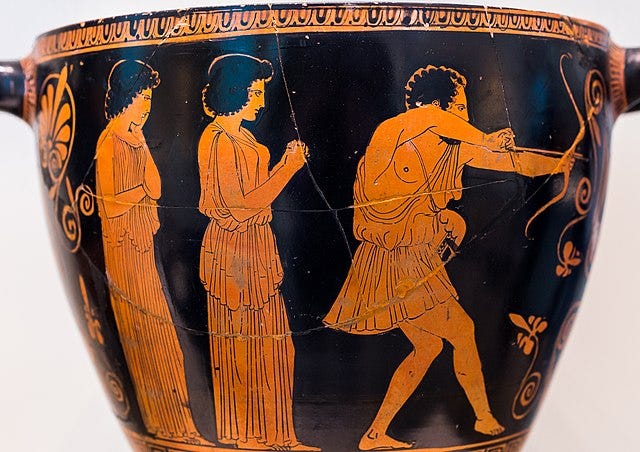The Third Mark of a New Monasticism
Hospitality to the stranger
Understand Physical Realities
Accept and Adapt
Live within Gaia
As the Fossil Fuel Age winds down to its confusing but inevitable end it is likely that there will be a monastic revival. In this series of posts we explore this possibility using the ideas presented in the Posbury St. Francis Annual Lecture given by Dr. Bethany Sollereder. The lecture’s title was Radical Hope: the roots of courage in inevitable climate change.
Dr. Sollereder talked about how monasticism is one response to ‘inevitable climate change’. A screen shot of one of her slides is shown below. In it she identifies ‘12 Marks of New Monasticism’. We discuss each of these 12 marks in the context of an Age of Limits.
The first two post in this series were,
The First Mark of a New Monasticism (Abandoned places of Empire), and
The Second Mark of a New Monasticism (Sharing economic resources).
The third ‘Mark’, the one that we discuss in this post, is,
Hospitality to the stranger.
This practice aligns with core spiritual values such as compassion, humility, and service, all of which are central to the monastic way of life.
Christian Monasticism
In Christian monastic communities, especially those following the Rule of St. Benedict, hospitality is seen as a sacred duty. The Rule states,
Let all guests who arrive be received like Christ.
For this reason, monasteries are often places of welcome for travelers, pilgrims, and those in need, regardless of their background or status. This tradition of hospitality is rooted in the belief that showing kindness to strangers is a way of serving God and living out the Gospel values of love and charity.
Buddhist Monasticism
In Buddhist monasticism hospitality is also a key practice, though it may differ slightly depending on cultural and regional traditions. Monasteries often serve as centers of refuge for laypeople and pilgrims, providing food, shelter, and spiritual support. Monks and nuns offer teachings, guidance in meditation, and spiritual advice to visitors. Monasteries may also act as centers of charity, helping to feed the poor, shelter those in need, or provide basic healthcare in rural areas.
The Odyssey
The Odyssey was probably written somewhere around 750-650 BCE. At that time the Greek/Mycenaean world lacked central authority, so travel was always dangerous. The only way that people could travel safely was if there was a code of hospitality that everyone honored. In his Introduction to the Fagles translation of the poem, Bernard Knox states,
The theme of the poem is the relation between host and guest, particularly the moral obligation to welcome and protect the stranger, an obligation imposed on civilized mankind by Zeus, one of whose many titles is xeinios, “protector of strangers”.
Contemporary Practice
Many modern monasteries operate guesthouses or retreat centers, offering spaces for people seeking rest, spiritual guidance, or a quiet place for reflection. The monastery may offer a simple meal, a place to stay, and time for quiet contemplation, often at no or minimal cost.
If there is a monastic revival, it is likely that hospitality to the stranger will be one of the core values.




